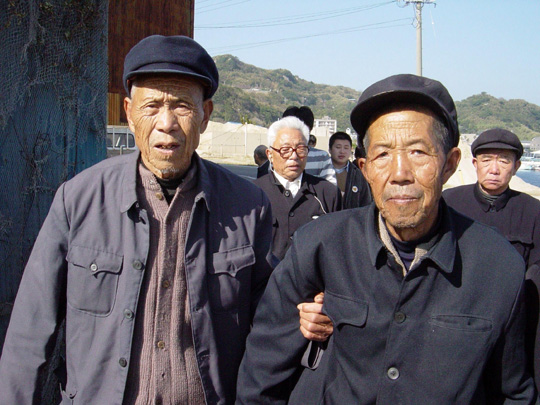APOWs at Aso Mining during World War II have captured most of the headlines since Taro Aso became prime minister last fall, but other forced labor redress efforts are gaining momentum that will continue regardless of who becomes Japan's next leader.
American POWs have received a historic apology and expect to be included in a Japanese reconciliation program soon. The remains of Koreans conscripted by the Japanese military are being sent home to South Korea, as new details are emerging about the unpaid wages for civilian labor conscripts now held by the Bank of Japan. A Japanese construction company is now moving to compensate Chinese forced laborers, while an influential mining firm has expressed willingness to follow suit. There are also signs the global trend toward righting past wrongs is picking back up — and would be boosted by a change of ruling party in Tokyo.
Media coverage peaked in mid-June during a visit to Japan by an Australian survivor of forced labor at Aso Mining and the British son of an Aso POW who died after the war. The pair retraced the trail of wartime mistreatment and met with sympathetic lawmakers from the opposition Democratic Party of Japan. Prime Minister Aso refused to meet the visitors or apologize to them, but talks were held with officials of Aso Corp., who insisted they could not confirm the presence of POWs at Aso Mining despite being shown records produced by the family firm in 1946. Seeking apologies and compensation, the visitors walked away with corporate lapel pins instead.



















With your current subscription plan you can comment on stories. However, before writing your first comment, please create a display name in the Profile section of your subscriber account page.